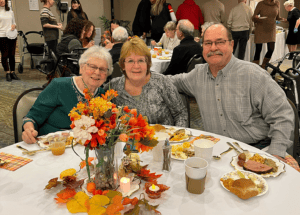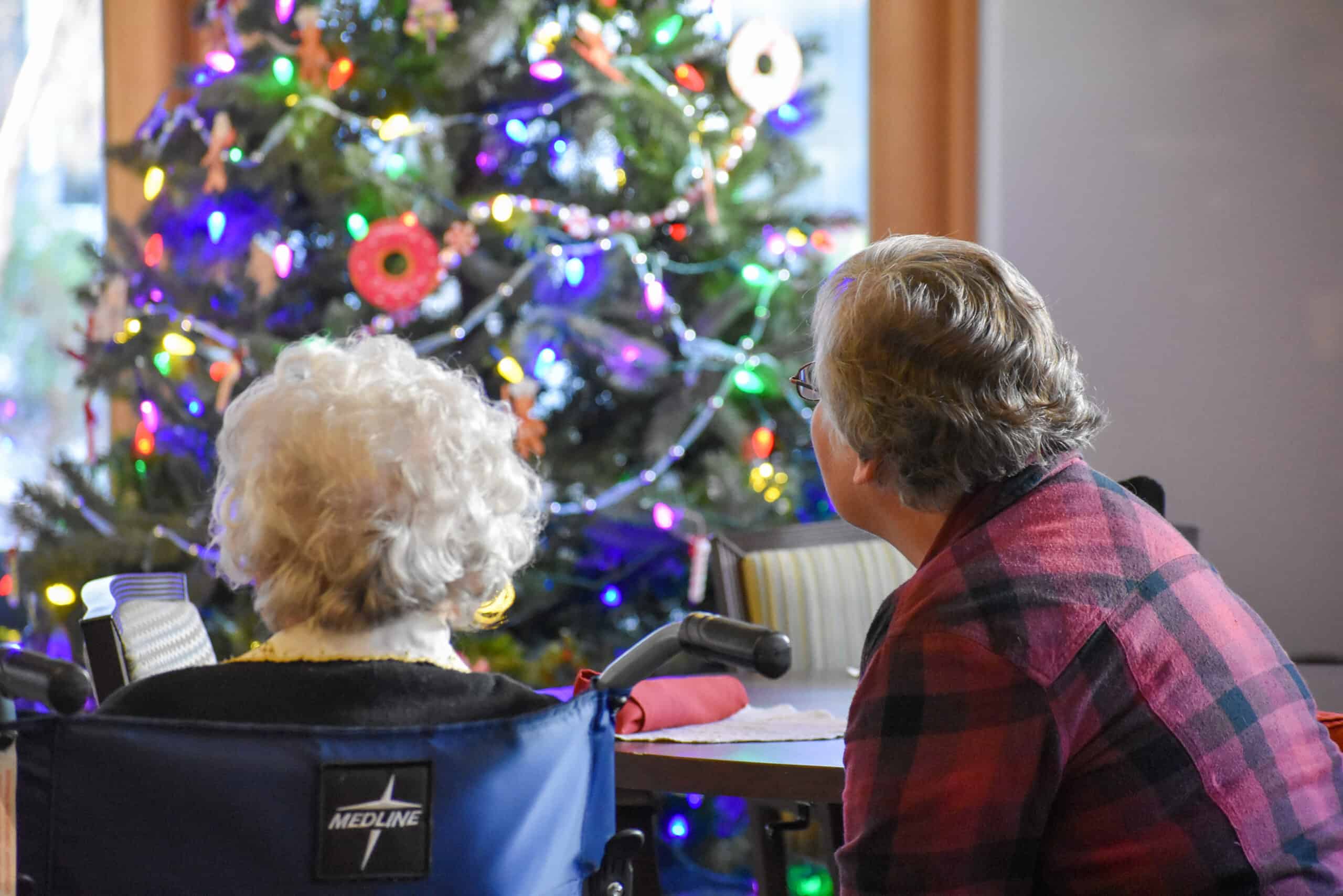
Are you are headed off to grandmother’s house this holiday? Or maybe mother’s, father’s, or another aging loved one’s residence? If so, this is a good opportunity to see how your loved one is getting along in their home and to take note of any changes since your last visit. Especially if your loved one is living alone, it is important that they are in a safe environment and effectively managing their day-to-day needs. Here are some things to look for during your visit:

Appearance
When you first see your loved one and throughout your visit, note their general appearance: are they wearing clean clothes? Do they appear groomed, or unkempt? If applicable, is their hair clean? Many older adults shun showering and bathing for a variety of reasons—afraid of falling, not wanting to get cold, etc. They may be bathing minimally, or “bird bathing,” washing up using the sink. You will also want to note any obvious and/or unexpected weight loss or gain, which can be an indicator of other issues.
Smells
When in the home, do you notice any offensive smells? Be sure to check trash cans for overflowing trash as well as the refrigerator/cupboards for spoiled or expired food. In the bathrooms, bedroom, and their favorite chair or sitting spot, check for signs of incontinence and smells associated with it. If there are pets in the home, are cat litter boxes clean or are dogs able to get outside regularly for potty breaks?
Mobility
How is your loved one getting around? Are they limping, shuffling, or using furniture for leverage? In the bathroom, are there grab bars? (Note: towel bars are NOT grab bars and are hazardous to use as grab bars.) Are they walking with a walker, cane, or rollator (or should they be)? If so, are the spaces they are traversing free of obstacles? If the home has stairs, can your loved one use them safely or do they avoid them for fear of tripping and falling?

Home safety
Can you enter the home easily and move through the hallways and rooms with relative ease? Look for clutter such as papers or dishes; trip hazards like cords or unsecured rugs; and fire hazards including lit candles, space heaters, overloaded plugs, and extension cords. Also note the stove. Is it being used as a catch-all for papers and other materials? Do you notice burners being left on or burnt pots and pans? Does your loved one turn it off after they use it?
Refrigerator/eating habits
Check the refrigerator and cupboards to be sure your loved one has adequate food. If prepared foods or leftovers are present, are they still edible? Look for spoilage and use-by dates on packaged foods. It is not uncommon for older adults to eat less than they used to, but “forgetting” to eat can be a red flag. Does your loved one cook or use the microwave? Ideally, there will be a variety of nutritious foods in the home, including fresh fruits and vegetables.
Finances
If your loved one is in charge of their own finances, do they have anyone else on their accounts or a family member or other trusted designee to review their checkbooks or transactions? While your loved one may be very private about their money, another pair of eyes can be invaluable to catch discrepancies and unusual charges and payments. Does your loved one send money to every charitable organization that solicits them? (We have seen older adults give away tens of thousands of dollars just because they are solicited for funds!) Can they discern fraudulent mail solicitations from “trusted” sources like the IRS or a utility company? Unfortunately, we have also seen many scams that target older adults via phone, the computer, and the mail. Be vigilant. (See below for more on scams.) Also make note of any piles of unopened or discarded mail.

Memory
Do you notice your loved one asking the same question(s) over and over? What about forgetting recent information? Dementia most often affects short-term memory, which means your loved one may perfectly recall an event from 40 years ago and forget what they had for breakfast that morning. Can your loved one answer basic questions like their name and age, what city they live in, today’s date, and who the president is? If you suspect Alzheimer’s or another type of dementia, or want to know what changes might be considered “age-related,” here is a helpful list from the Alzheimer’s Association of what to look for. Also, do not overlook paranoia, severe anxiety in crowds, or your loved one hiding objects. These can be signs of dementia.
Driving
Does your loved one still drive? If you get a chance, check to see that their license is still valid and has not expired. It is also a good idea to eyeball the car—do you notice any dings, dents, or swipe marks? If you are able to be a passenger when they drive, observe how they handle stop signs, speed limits, rules of the road, and depth perception.
Phone, computer, postal mail: handling scams
Sadly, scammers often target older adults and intentionally try to confuse them or convince them they are legitimate entities. Is your loved one aware of common scams, like the grandparent scam, tech support scam, government impersonation scam, and others? The National Council on Aging lists the top five scams targeting older adults here. How does your loved one handle incoming calls? Do they have a policy not to answer any number they do not recognize? If they get an e-mail from “Apple” saying that their phone or computer has been compromised, what is their next step? It is crucial to educate yourself, and your loved one, about scams! We’ve seen residents and family members alike lose thousands of dollars, even life’s savings, to scammers.
Medications
Does your loved one take daily meds or supplements? It is very important that your loved one is taking their medications properly: the right pills on the right days the right way. If your loved one has a pill box, note if they are on the correct day. If they still have bottles, note the dispensing instructions to be sure they are being taken properly.

While this is not an exhaustive list, still, it may seem overwhelming to try to notice all these things. You may need to observe your loved on multiple visits or rely on other family members or friends as a second set of eyes.
If you notice anything you are concerned about, you may want to first ask your loved one about the issue (they may be defensive). Then reach out to your loved one’s other family members (spouse, children, siblings, etc.), power of attorney, and physician. If you think it might be time for some supports for your loved one, but are not sure what they might be, start with local resources: your Area Agency on Aging, health department, or senior center are good places to start. Your state’s department of aging may also be able to provide direction.
If you are considering senior living options such as independent living, assisted living, memory care, or skilled nursing care, we invite you to visit the Willow Brook website to learn more. You can submit a web inquiry form, download a Finding the Right Fit guide, or give us a call. We will be here when you need us!
From all of us at Willow Brook, God bless you and yours this Christmas and holiday season, and best wishes for a peaceful and joyous new year.
